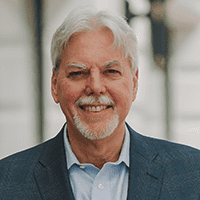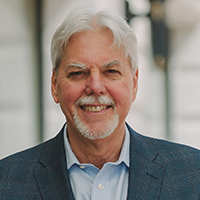
The Last Word
Three years after the worst financial crisis since the Great Depression, when some of the country’s largest financial institutions teetered on the edge of failure, are U.S. banks now over-capitalized? John G. Walsh, the acting comptroller of the currency, doesn’t think so-although he does believe that higher capital requirements will force a change in the industry’s business model as banks search for higher returns. Recently, Walsh-who at the time of publication was waiting for the U.S. Senate to confirm his successor to a new five-year term-spoke with Bank Director Editor Jack Milligan about this and other regulatory issues.
BD: Is the banking system at risk of becoming over-capitalized, and what might some of the ramifications of that be if it were true?
WALSH: A lesson of the crisis was that banks were inadequately capitalized, and so minimum capital levels have been raised. But have we now gone too far? If banks maintain the level of capital that is now likely to be a regulatory minimum, and if the market wants banks to hold capital above the regulatory minimum as is usually the case, there will be downward pressure on the returns that banks can earn. Expectations about return on equity will have to change to adapt to what that new model looks like, or banks are going to have to find some new way to earn higher returns than they are at the moment. If you have that kind of shift, and it’s a permanent shift, it will have implications for investor interest. If the banks try to head in other directions to increase returns, that will have implications for the business model. I think the result is less a matter that banks will be over-capitalized than that we are looking at a shift in the model. Then the question will be: How will that model work? Will there be investor interest? Will the institutions operate in ways that we recognize, or will they have to find new ways to earn returns?
BD: Were the Dodd-Frank Act and the Basel III Accord appropriate and measured responses to the financial crisis, or did they overreach in some respects?
WALSH: The many elements of Dodd-Frank and the fairly complicated set of agreements in Basel III were designed to respond to the crisis, and therefore are directionally correct in terms of tackling excessive risk-taking. But taken together, do they go too far? I do worry that in that very large reform agenda, it seems we are trying to solve the same problem two or three times over, and there are interactions among the different rules that we have to be careful about. Otherwise, we will lose some of that benefit through overlap and confusion.
BD: What do you think to be the most effective aspect of Dodd-Frank in terms of preventing the next crisis, whenever that occurs?
WALSH: I think the key piece will probably turn out to be the Financial Stability Oversight Council. But the question is whether it becomes just another inter-agency committee where everybody goes and blabs and the talk becomes stale, or people take their responsibilities seriously-which I certainly think they do at the moment-and it sustains its vigilance over time. Will people put real issues on the table? If they do, and are serious about it, we will collectively have a more comprehensive view of the risks in the system. One of the clear failures before this last crisis was that plenty of people saw the risks that were out there, but the regulators had a tendency to focus within their own silos and say, “The institutions I’m looking at appreciate the risks that are out there.” We let pressures and practices build up in places that were not on our beat, and some of those very issues caused the trouble we saw in institutions that we were supervising and throughout the system.
BD: If the regulators had stepped in sooner, wouldn’t they have been criticized as being anti-capitalistic?
WALSH: We’re supposed to be the bad guy at some level. It’s our job to sit and fret and tell people they’re going too far. But there are limits to the regulator’s ability to do that. When I first came to the OCC and we looked at statistics for the banks, everything was coming up roses. You could not find any sign of trouble by any measure, except that seasoned OCC supervisors said you couldn’t have those kinds of commercial real estate concentrations and not put yourself at great risk when the crunch came. They were right, and if you look at the community banks that failed, it is almost universally true that they had very high concentrations of land acquisition and development loans and relied on brokered deposits to fund their growth. But there were also banks that followed that same business plan that didn’t fail. In fact, more of them didn’t fail than did. So you could lean in and try to slow some people down and influence the course of events, but you could never say definitively that that combination was a killer.
John G. Walsh is acting comptroller of the currency.

Join OUr Community
Bank Director’s annual Bank Services Membership Program combines Bank Director’s extensive online library of director training materials, conferences, our quarterly publication, and access to FinXTech Connect.
Become a Member
Our commitment to those leaders who believe a strong board makes a strong bank never wavers.



